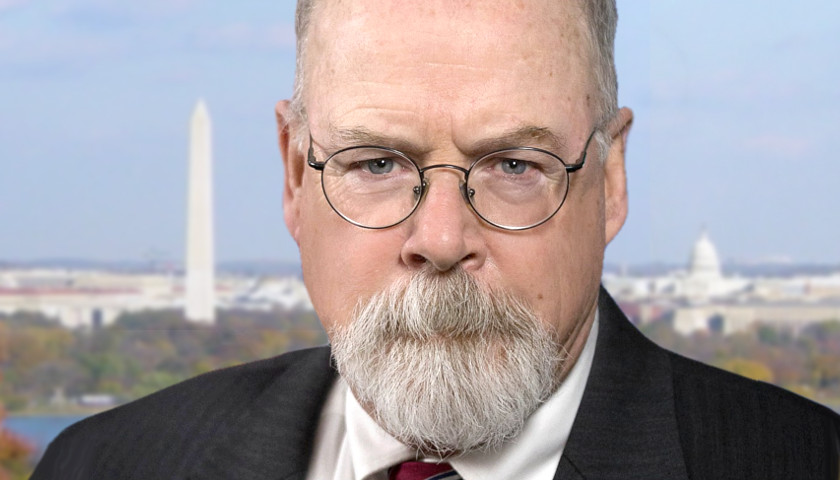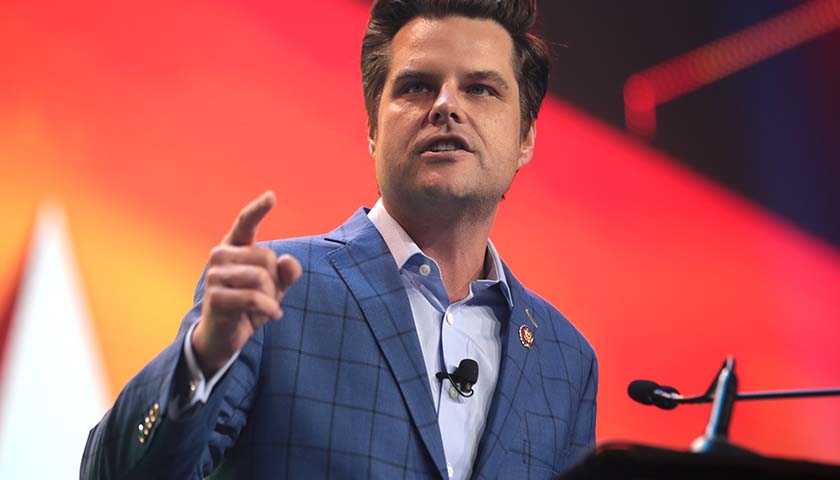by John Solomon
In a bombshell revelation, Special Prosecutor John Durham revealed Tuesday in court filings that the FBI paid a Russian businessman as a confidential human source in the investigation of Donald Trump’s 2016 campaign even though it had prior concerns that businessman was tied to Moscow’s intelligence services.
Durham persuaded the federal judge in the upcoming trial of Igor Danchenko to unseal a motion revealing that Danchenko, the primary source of the now-discredited Steele dossier, was paid by the FBI as a confidential human source for more than three years until the fall of 2020 when he was terminated for lying to agents.
Danchenko is charged with five counts of lying to the bureau during that relationship and faces trial next month in federal court in the Virginia suburbs of Washington D.C.
“In March 2017, the FBI signed the defendant up as a paid confidential human source of the FBI,” Durham’s unsealed court filing disclosed for the first time. “The FBI terminated its source relationship with the defendant in October 2020. As alleged in further detail below, the defendant lied to FBI agents during several of these interviews.”
The revelation means that the FBI first fired former MI6 agent Christopher Steele, the author of the Hillary Clinton-funded dossier, as a human source in November 2016 for having unauthorized contacts with the news media. And it then turned around a few months later and hired Steele’s primary informer to work with the bureau even after determining some of Danchenko’s statements in the Steele dossier were uncorroborated or exaggerated.
Even more stunning, Durham confirmed that the FBI had concerns about Danchenko’s ties to Russian intelligence a decade earlier, opening up a counterintelligence probe on him after learning he was trying to buy classified information from the Obama administration.
“As has been publicly reported, the defendant was the subject of an FBI counterintelligence investigation from 2009 to 2011. In late 2008, while the defendant was employed by a prominent think tank in Washington, D.C., the defendant engaged two fellow employees about whether one of the employees might be willing or able in the future to provide classified information in exchange for money,” Durham revealed.
“According to one employee (“Employee-1”), the defendant believed that he (Employee-1) might be in a position to enter the incoming Obama administration and have access to classified information. During this exchange, the defendant informed Employee-1 that he had access to people who would be willing to pay money in exchange for classified information. Employee-1 passed this information to a U.S. government contact, and the information was subsequently passed to the FBI,” the filing added.
“Based on this information, the FBI initiated a “preliminary investigation” into the defendant. The FBI converted its investigation into a “full investigation” after learning that the defendant (1) had been identified as an associate of two FBI counterintelligence subjects and (2) had previous contact with the Russian Embassy and known Russian intelligence officers,” the filing disclosed.
The FBI closed that counterintelligence probe in 2010 but only after it “incorrectly believed that the defendant had left the country,” Durham told the court.
Before the FBI hired Danchenko as a confidential human source it detected more troubling behavior, prosecutors told the court.
“During his January 2017 interview with the FBI, the defendant initially denied having any contact with Russian intelligence or security services but later – as noted by the agents, contradicted himself and stated that he had contact with two individuals who he believed to be connected to those services,” Durham wrote.
The filing asked the court for permission to use evidence at trial of other lies that Danchenko allegedly told the FBI that are not charged as part of his indictment. The prosecutor argued the new evidence would show a pattern and how Danchenko’s deception led to false narratives in the Steele dossier and the news media, including the salacious and untrue allegation that Trump had consorted with prostitutes in Moscow.
Durham plans to show the jury evidence that Danchenko made “uncharged false statements to the FBI regarding his purported receipt of information reflecting Donald’s Trump’s alleged salacious sexual activity at the Ritz-Carlton Hotel in Moscow,” the filing said.
Prosecutors will provide evidence that Danchenko never received such information and plans to introduce testimony that members of the Moscow hotel staff never made any such claim about Trump’s behavior as the Steele dossier claimed.
“The Government has interviewed and expects to call at trial the then-general manager of the Ritz-Carlton Moscow, Bemd Kuhlen, a German citizen who does not speak Russian (and whom the Steele Reports describe as “Source E,” a senior (western) member of staff at the hotel.”),” Durham wrote.
“Mr. Kuhlen does not recall ever meeting or speaking with the defendant in June 2016, or at any time. Mr. Kuhlen also has denied (1) having knowledge of the Ritz-Carlton allegations at any time prior to their being reported in the media, (2) discussing such allegations with, or hearing them from, the defendant,” the motion reveals.
– – –
John Solomon is an award-winning investigative journalist, author and digital media entrepreneur who serves as Chief Executive Officer and Editor in Chief of Just the News.




